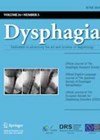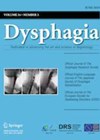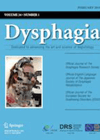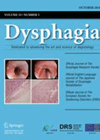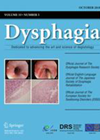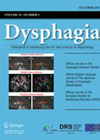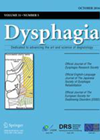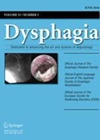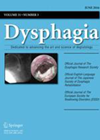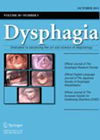
Journal Reviews
Gastro-oesophageal reflux and cricopharyngeal dysfunction – how do they link?
It has been hypothesised that cricopharyngeal muscle hypertrophy develops as a response to chronic gastro-oesophageal reflux disease. The cricopharyngeus muscle is an important component and contributor to the upper oesophageal sphincter that creates a barrier between the pharynx and oesophagus....
Standardising videofluoroscopy assessment for bottle-fed babies
Swallowing problems in babies may occur for many reasons including complex medical problems, premature birth, and low birth-weight. Dysphagia causes several further morbidities such as poor nutrition and compromised respiration, often raising distress for both infants and their caregivers. Early...
From a dysphagia clinical trial to a multidisciplinary head and neck clinical pathway – the road to implementation
This paper describes the barriers and facilitators to establishing a structured and coordinated multidisciplinary care pathway for patients with head and neck cancer at a medical centre in the USA. The initiative was set in motion by the roll out...
Bothersome ‘burping’ – speech therapy may help
Most people experience belching as a normal phenomenon, often after eating or drinking carbonated drinks in particular. However, separate to this normal physiological phenomenon, some people experience belches that can occur much more frequently (up to 20 times a minute)...
Who finds it hard to swallow?
Early identification of dysphagia in inpatients on acute stroke wards has been recommended as best practice guidelines in many countries. However, several institutions fail to use formal dysphagia screening protocols and rely on informal detection by nurses and doctors. This...
Should patients with dysphagia be allowed water freely?
Patients with dysphagia often experience dehydration as a consequence of “nil by mouth” or having to consume thickened fluids due to aspiration of thin fluids. However, not all incidents of aspiration develop into an infection. Factors that contribute to aspiration...
Do certain chronic medications increase dysphagia in older people?
Oropharyngeal dysphagia is known to affect a high number of older people in the community, in care homes and in acute geriatric admissions to hospital. The authors of this study have recognised that many older people take drugs for chronic...
Radiation-induced dysphagia in head and neck cancer
This is a helpful reference paper that provides an overview of the biomolecular effects of radiation on the tissues of the upper aero-digestive tract. The authors explain that radiation injuries occur in a repetitive and accruing manner over the duration...
What can we tell about swallow physiology from a bedside clinical assessment?
Knowledge about swallowing physiology has greatly increased with the use of instrumental assessments such as videofluoroscopy (VFS). The authors of this paper performed an analysis of data obtained from 60 stroke patients who were assessed via a clinical swallow examination...
Changes in swallowing function after thyroidectomy
Evaluation of functional impact following thyroidectomy tends to be focused on voice quality. The aim of this study was to document early (seven days postoperatively) and late changes (60 days postop) in swallowing function after thyroidectomy. A preoperative naso-endoscopic evaluation...

